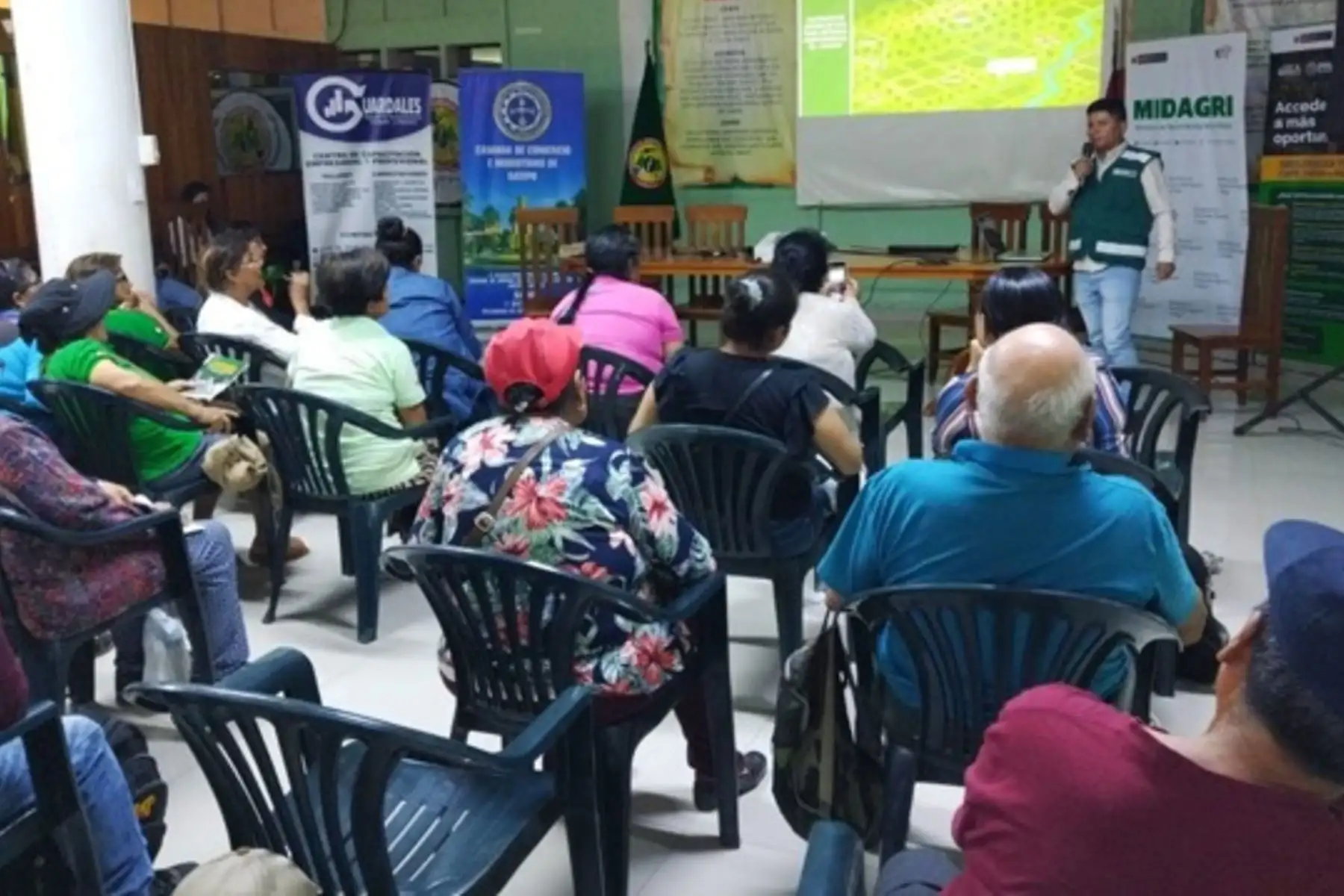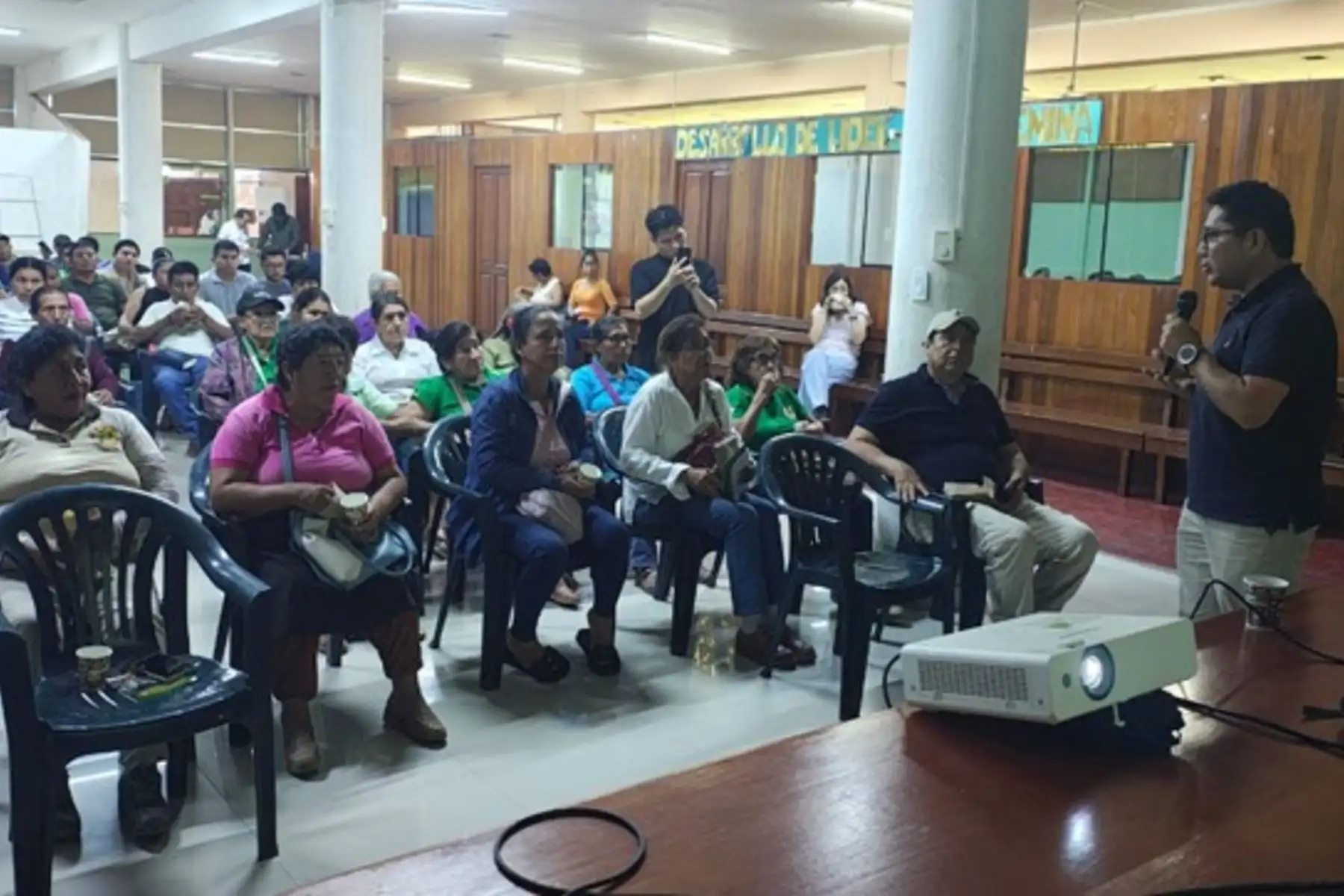The Ministry of Agrarian Development and Irrigation (MIDAGRI) is strengthening national readiness for the European Union Deforestation Regulation (EUDR), continuing a series of regional workshops focused on enhancing the technical capacity of stakeholders across Peru’s coffee and cacao value chains.
The workshop sessions, held on October 22 and 23 in the provinces of Satipo and Pichanaki, gathered representatives from public institutions, cooperatives, producers, associations and agribusinesses to assess progress, challenges and opportunities related to EUDR implementation in the country.

More than 110 participants attended the events, hosted at the Satipo Agrarian Coffee Cooperative and the ACPC Pichanaki Cooperative.
Technical specialists presented key environmental and operational requirements that will allow producers to comply with European standards and preserve their competitiveness in international markets.
The EUDR, which will take effect in 2026, establishes that products such as coffee, cacao, palm oil, cattle, soy, timber and rubber may enter the European Union only if they are free from deforestation, comply with national legislation in the country of origin, and include a due diligence statement.
MIDAGRI detailed Peru’s National Strategy for EUDR Implementation, structured on three pillars: information generation, clarification of the legal framework and risk management throughout the due diligence process.
The National Forest and Wildlife Service (SERFOR) presented the Use Concession for Agroforestry Systems (CUSAF) mechanism, which formalizes agricultural, forestry and livestock activities on forest and protection lands. Meanwhile, the General Directorate of Agrarian Environmental Affairs (DGAAA) provided guidance on the Environmental Management Regulation for the Agrarian and Irrigation Sector (RGASAR), which promotes environmental sustainability in agricultural and livestock investments.

Participants included representatives from the Satipo Chamber of Commerce, Agromercado, Mishagro Cooperative, Río Amarillo Association, Kivinaki Cooperative, Los Chankas Cooperative, Finkafé Association, Agrop Selva Central Cooperative, Montaña Bio Azul Association, Aconcafé, Mareriaki Association and Natural Caffeterías, among other local organizations.
This workshop was supported by the Sustainable Agriculture for Forest Ecosystems (SAFE) project, co-financed by the European Union (EU), the Ministry of Foreign Affairs of the Netherlands and the Federal Ministry for Economic Cooperation and Development (BMZ) of Germany.
The project is implemented by the German Development Cooperation (GIZ) in collaboration with the ACPC Pichanaki Cooperative, the Satipo Agrarian Coffee Cooperative and additional partner organizations to ensure broad outreach and active participation across the region.